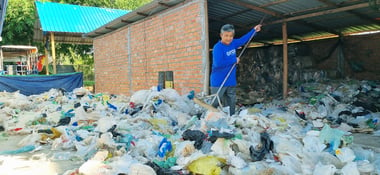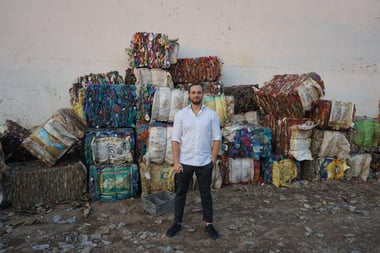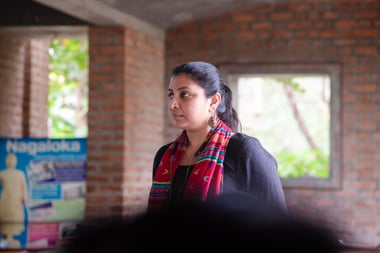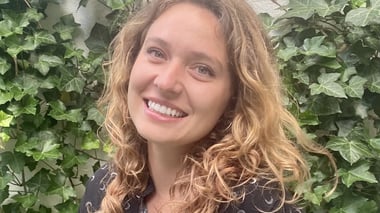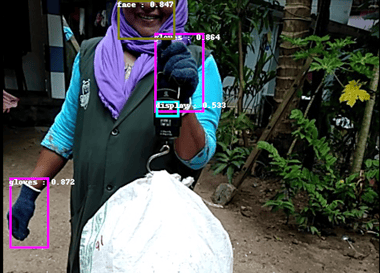Plastic credits are a relatively new concept to many people, but they're an important tool to prevent global plastic pollution.
This helpful tool can enable businesses to take immediate and tangible action against plastic waste and provide much-needed investments in waste collection in high-pollution hotspots.
However, because this concept is still taking off, there is a lack of transparency among some credit companies, and no industry standard exists yet.
That's why we're proud to announce that CleanHub has become the first plastic credit system to be verified by industry leaders in auditing environmental impact TÜV SÜD. With this certification in place, users can be assured that we are authentic, transparent, and trustworthy with our plastic recovery efforts.
Here's everything you need to know about the news.
.webp?width=2400&height=1260&name=Collection%20(1).webp)
CleanHub's TÜV SÜD verification
CleanHub has become the first plastic credit system verified by auditing leader TÜV SÜD, according to the ISO 14064-3 standard. TÜV SÜD is accredited according to ISO 17029, which defines general principles for validation and verification bodies.
Ultimately, this news is bringing a new level of transparency and rigor to the plastic credit market.
To prevent ocean plastic and enable the circular economy, we need to connect 2 billion people to effective waste management. For this to happen, significant funding is required — and some nations simply don't have the budget.
Thankfully, plastic credits can provide that source of finance by partnering with brands around the world, who can fund the recovery and management of plastic waste.
Of course, this is all very new, meaning some people might be a bit wary of how plastic credits operate.
To give buyers confidence when partnering with CleanHub, we've built a track and trace system to ensure the recovery of plastic waste from collection to responsible disposal. Every bag of waste is weighed and photographed, and quality is monitored by AI alongside manual checks.
The TÜV SÜD audit provides third-party verification that CleanHub has the competence, consistency of operation, and impartiality to issue plastic credits.
“Trust and transparency are essential if brands are going to invest in plastic credits to prevent plastic waste. I believe that we have set the standard for the market with the quality of our processes and our extreme transparency. I would love to see others working to this standard so that more brands can invest in preventing plastic pollution with confidence.” — Joel Tasche, CleanHub Co-Founder and CEO
CleanHub's TÜV SÜD audit details
After a thorough investigation, TÜV SÜD's audit confirms that:
- CleanHub’s data provides an accurate audit trail, reflecting their plastic recovery operations from source to end processing
- CleanHub’s data quality control processes and operational standards are robust. This includes AI-driven automated data reviews, alongside manual processes
- CleanHub's allocation of recovered quantities (plastic credits) to customers is robust
The audit was completed with a verification period (reporting data basis) from 1 January 2022 to 30 September 2022, and a validation period from 1 October 2022 to 31 December 2022.
|
We're proud to say that, as of January 2024, CleanHub's TÜV SÜD verification was renewed for the period (reporting data basis) from 1 October 2022 to 31 December 2023. Want to see for yourself? Check out the certificate here. |
About the ISO standards
ISO 14064-3 is an international standard that specifies the framework for verifying and validating greenhouse gas (GHG) statements, and issues carbon credits. This is the overarching standard basis that has been adapted and applied here for the verification of plastic credits during TÜV SÜD’s data quality assessment.
ISO 17029 is an international standard that contains the principles and requirements for the competence, consistent operation, and impartiality of bodies performing validation/verification as conformity assessment activities.
Bodies operating according to this standard can provide validation/verification as a first-party, second-party, or third-party activity. This standard has been applied to the verification and validation processes of TÜV SÜD.
“We are industry leaders in auditing carbon credits against internationally recognized standards, such as ISO 14064-3. We are excited to verify plastic credits for the first time with CleanHub using the same methodology. CleanHub’s data quality and transparency set a rigorous standard.” — Robert Hermann, Divisional Manager of Green Energy & Sustainability at TÜV SÜD
Summary
Plastic credits are a mechanism to incentivize the removal and recycling of plastic from the environment.
It's also a win-win system — companies can purchase these credits, enabling them to take immediate and tangible responsibility for plastic waste, and communities can benefit from the recovery projects.
Want to learn more about how CleanHub works in the plastic credits space? Check out our helpful guides below:



